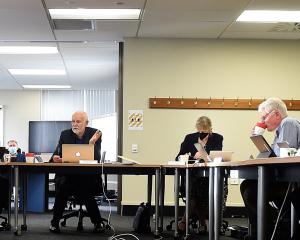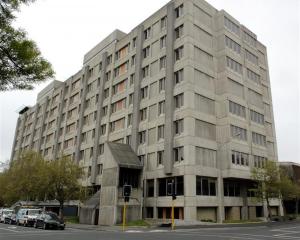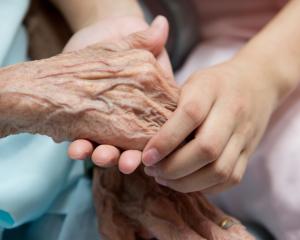A member of the expert panel considering the future of neurosurgery in the South will visit Dunedin today to "collect some facts" before the full panel travels to Christchurch, Dunedin and Invercargill next week.
Consumer rights advocate David Russell, the former head of Consumer New Zealand, will spend about five hours in the city today.
In the morning, he will meet some of the people leading the community protest against the possibility of neurosurgery services being centralised in Christchurch, and in the afternoon he will listen to personal stories from former neurosurgery patients.
Mr Russell said when contacted last night he had "no idea" what would transpire during the day.
"It will be my first contact with the Otago community ... I will be collecting some facts before the full panel visits."
The meetings will be private.
Mr Russell said he would not talk to the media after the meetings - it would not be right to comment "at this very early stage of the neurosurgery services review".
He is the only non-clinician on the three-person panel.
Its other members are Auckland paediatric surgeon and head of the clinical school at Auckland University Anne Kolbe and Adelaide neurosurgeon Glenn McCulloch.
Ms Kolbe chairs the panel.
They will be in the South from Monday to Friday next week and may also visit other South Island centres later.
Earlier this month, Ms Kolbe said it was possible panel members would travel individually to meet groups and individuals.
Otago Polytechnic lecturer Associate Prof Samuel Mann, one of those behind the Keep Neurosurgery in Dunedin campaign, said yesterday he was "very pleased" Mr Russell was visiting.
The meeting would set in place further opportunities for the South to contribute to the review.
Ms Kolbe had made it clear the panel was interested in a "constructive contribution" to the review from all parties, Prof Mann said.
It was hoped today's meeting would provide Mr Russell with the key themes from the mountain of comments the campaign had generated from ordinary people, he said.
"We hope to be able to help him draft a community terms-of-reference document which will be a balance to the clinical arguments about the future of neurosurgery.
"We don't want the community views to be dismissed by the panel as `yes, well, we know the community is angry'."
Prof Mann said neurosurgery patients were "desperate" to tell the panel their stories and Mr Russell would be asked to convey the wish that the panel appear at a "town hall-style" public meeting sometime next week.












